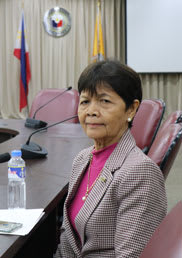Ramadan in lockdown: the habits we break, the values we relearn
Muslim Filipinos certainly met this year’s Ramadan with exuberance, but the lockdowns brought new concerns especially to those who are economically disenfranchised to begin with.
Residents in Muslim enclaves in Metro Manila hardly afforded iftars (meals to break the fast). They say relief goods from local governments ran out even before Ramadan. Without public transportation, some walked miles to access food, and since they could not afford to stockpile, some did this every day. It was a different level of hardship altogether for those who fasted.
It was heartbreaking to worship in place and limit social interaction. Some questioned the fatwah (religious decree) of the Darul Ifta’ and the memorandum order of the National Commission on Muslim Filipinos suspending taraweeh or night time prayers in congregations, particularly in areas like Sultan Mastura in Maguindanao and other municipalities in the Bangsamoro with zero reported COVID-19 cases. Reports of violations arose.
The recent Critical Events Monitoring System (CEMS) report of International Alert Philippines indicates ISIS-affiliated groups had threatened Lanao del Sur mayors of launching attacks if the ban continued. The organization noted that threat groups could prey on the deflected attention of the State and launch opportunistic attacks. This projection played out in the killing of two soldiers manning a quarantine checkpoint in Datu Hoffer, Maguindanao by ISIS-affiliated gunmen last May 4. Alert’s CEMS further notes a regrouping of ISIS forces in the Bukidnon-Lanao-Maguindanao corridor. Likewise, retaliation against individuals who were seen as disrespectful of faith and traditions in their implementation of quarantine measures are possible.
The quarantine posed many difficulties and anxieties to those who observed Ramadan, as it did to everyone across the country. Remarkably, though, overcoming challenges is the essence of Ramadan. To fast in the holy month is an intense moral training to break bad habits and develop character. To a Muslim, abstaining from eating and drinking, from telling lies and acting in anger, help develop self-restraint and inculcates patience, gratitude, and compassion.
The lockdown calls us to do the same. It is also about learning from our daily challenges and adversities, to empathize and be one with the poor and the oppressed, speak truth to power, and move forward with universal values of equality, peace, and human dignity we all share regardless of religion.
There is merit in involving people in finding solutions together and cooperation is better fostered with stakeholdership, not by force and fear. Islam calls this important governance concept shura, which requires that decisions made by and for Muslim societies include those who are affected. Shura is mentioned in the Qur’an as a praiseworthy activity, one that our government can replicate in its crisis response.
To be sure, COVID-19 crisis and the ensuing lockdowns have not always been about protracted issues, we also witnessed collective action and solidarity at its best. Members of International Alert’s youth network in the Bangsamoro, for one, localized and uploaded instructional materials on how to pray taraweeh. Not only did their guide help fellow Muslims observe their faith even in solitude, it contributed to minimizing the risk of spreading the virus and igniting tensions and violence by discouraging violations.
Just as fasting in Ramadan is a test, so too is this lockdown. Just as Ramadan allows us to reflect on what the less fortunate are going through, so too should this lockdown. The celebration of Eid’l Fitr marking the end of Ramadan poses an opportunity for reflection on the huge challenge ahead of us and for the re-examination of values to strengthen and habits to shed, as we live the ‘new normal’. In this period of massive humanitarian and health crisis, we need to continue to look out for each other.
This Op-ed was published on BusinessWorld on 25 May 2020. A longer version was published on Rappler on 24 May 2020.




